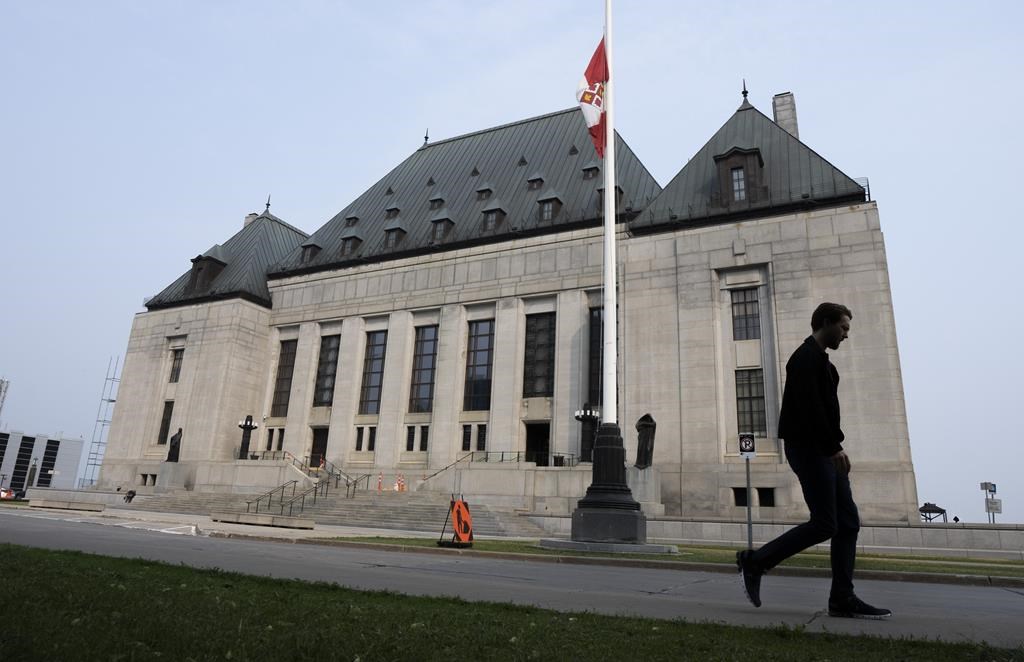The Supreme Court of Canada has partly upheld an appeal from the media about a trial held in Quebec behind closed doors involving a police informant, but the high court insists no “secret trial” ever took place.

The trial judge and Quebec Court of Appeal acted correctly in keeping information secret that could identify the informant, such as the nature of the crime, where it allegedly took place, and the name of the judge involved in the case, the Supreme Court said in a unanimous ruling on Friday. The case had no docket number, and the names of the lawyers involved were also kept from the public.
However, the Supreme Court said part of the legal proceedings could have been kept on the court’s docket and hearing roll, even in a case for which proceedings are held “in camera,” meaning in private, without public or media access.
“We have difficulty imagining a single scenario in which revealing the mere existence of an in camera hearing and of any decision rendered as a result is incompatible with the protection of an informer’s anonymity, such that their existence must remain confidential indefinitely,” the court wrote.
The original case involved an informant who was convicted of participating in a crime that they had revealed to police. The existence of the trial only became public because the informant appealed their conviction and the Court of Appeal in March 2022 released a redacted decision that set aside the conviction and was highly critical of what it called a “secret trial.”

Get breaking National news
Lawyers for the province’s attorney general, the chief justice of the Quebec court and several media organizations, including The Canadian Press, went before the Quebec Court of Appeal to get details about the case and the informant.
That appeal failed, however, when in July 2022 the Court of Appeal ruled it could not release any information, saying the right of informants to remain anonymous supersedes the principle of court proceedings being open to the public. That ruling was appealed to the Supreme Court.
In its decision Friday, the Supreme Court criticized the Court of Appeal’s use of the word “secret trial” and maintained that no such thing took place. It said the proceedings against the informant “began publicly through the filing of a criminal prosecution” and were only made private when the accused decided to bring a motion for a stay of proceedings based on the state’s alleged abusive conduct toward them as a police informer.
“The magnitude of the controversy could also have been limited if the Court of Appeal had not used the expression ‘secret trial’ to describe what were actually in camera hearings held in a proceeding that began and initially moved forward publicly,” it wrote.
“In addition to being inaccurate, this expression is needlessly alarming and has no basis in Canadian law.”
The high court noted that both the original judge and the Court of Appeal correctly upheld their duty to protect the identity of the police informant, but that both courts could have provided more information without compromising that objective.
The Supreme Court said the trial judge could have created a “parallel proceeding” relating to the informant’s motion for a stay. That, they said, could have been kept separate from the original criminal proceeding, which would have protected the informant while allowing for a docket number and for a redacted version of the judgment to be released.
It also ordered the Court of Appeal to produce a redacted version of the initial trial judgment that both protects the informant’s identity and better respects the principle of open courts.
The lawyer representing the media outlets welcomed the decision, which he said ensures an informant’s privacy and also shows respect for the principle that trials need to be as public as possible.
“What it’s saying, in fact, is that there was, in a public trial, a procedure which was completely hidden — secret,” Christian Leblanc said in an interview.
“In the end, the court is saying that it should not have happened that way, that there should have been, at the very least, a court number listed publicly and a judgment published — even if redacted — to ensure that there are no such secret procedures.”
The court, however, rejected an argument by media companies that the rules surrounding the disclosure of information need to be eased, and that judges should be compelled to let third parties — including media — know that an informant is seeking to have their identity protected.
The court said judges must maintain the right to choose whether to inform journalists about an informant’s request for privilege, noting that “one cannot exclude the possibility that a rigid rule would prevent an informer’s anonymity from being preserved in a particular case.”







Comments
Want to discuss? Please read our Commenting Policy first.